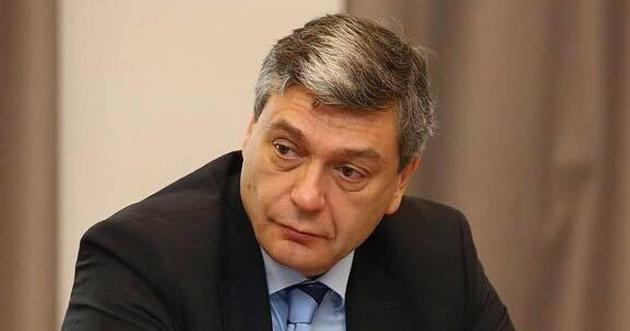Deputy Minister of Foreign Affairs of the Russian Federation Andrei Rudenko, speaking in an interview with Izvestia about the crises near the Russian borders, spoke in detail about the South Caucasus. He stated that Moscow is closely working with Azerbaijan and Armenia on all aspects of the Nagorno-Karabakh problem, building on the basis of the trilateral statement of November 9 last year on a ceasefire and all hostilities in the conflict zone.
Rudenko recalled that today the truce is provided by the Russian peacekeeping contingent deployed along the line of contact of the sides and in the Lachin corridor and assured: Of Yerevan as a whole ".
At the same time, the Russian diplomat stressed that at the Moscow summit on January 11, a working group was formed under the joint chairmanship of the vice-prime ministers of Russia, Azerbaijan and Armenia. Its main task is to unblock transport and economic communications. The first meeting of the working group took place in Moscow on January 30. Now specialists from the three countries are starting to work in terms of their industry specialization. Rudenko drew attention to the fact that it is about the prospects for economic recovery in the broader context of the South Caucasus: "Peace and stability are in the interests of all partners in the region, including Georgia, Iran and Turkey. We count on their support for the aspirations of Baku and Yerevan to normalize relations in in line with the tripartite statement of November 9, 2020 and the agreements on January 11 ".
At the same time, the Deputy Foreign Minister of the Russian Federation saw in the actions of Western countries a desire to "reshape the post-Soviet space, destroy centuries-old ties between the peoples living there and impose their own scale of democratic values. Such a line, accompanied by gross interference in the internal affairs of sovereign states, largely provokes crisis phenomena along the perimeter. Russian borders ".
"The situation in the CIS space is directly projected on our security. In this regard, the situation in these states is far from being indifferent to us. We are interested in having stable, prosperous states in our neighbors, in which economic growth is ensured, human rights with which we develop friendly, partner, even allied, relations. For us, attempts to dictate to the CIS countries from outside, especially from overseas, how to live and with whom to be friends are categorically unacceptable. We intend to toughly oppose such a policy, "the diplomat said.






